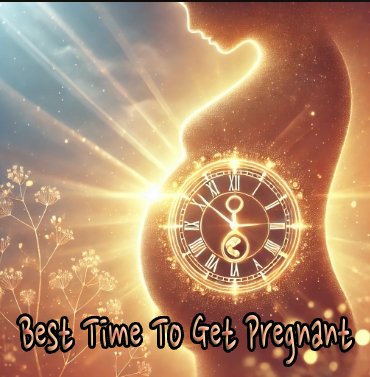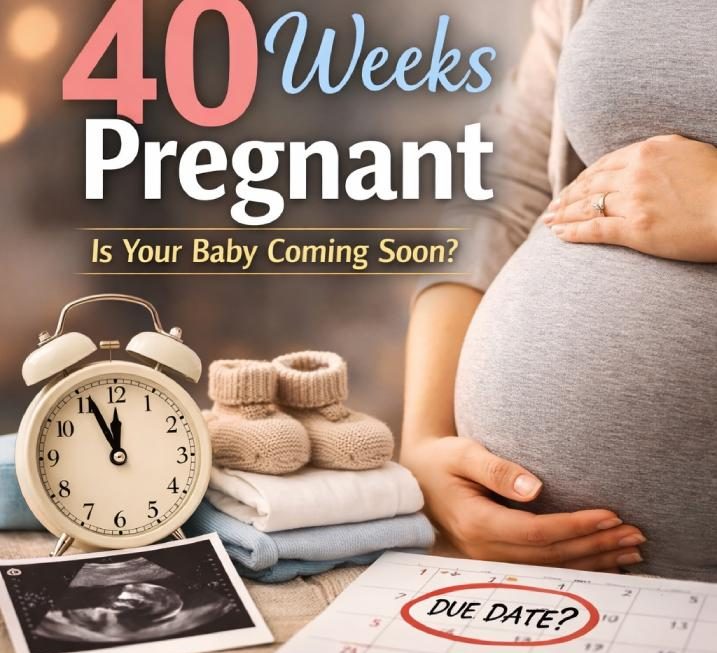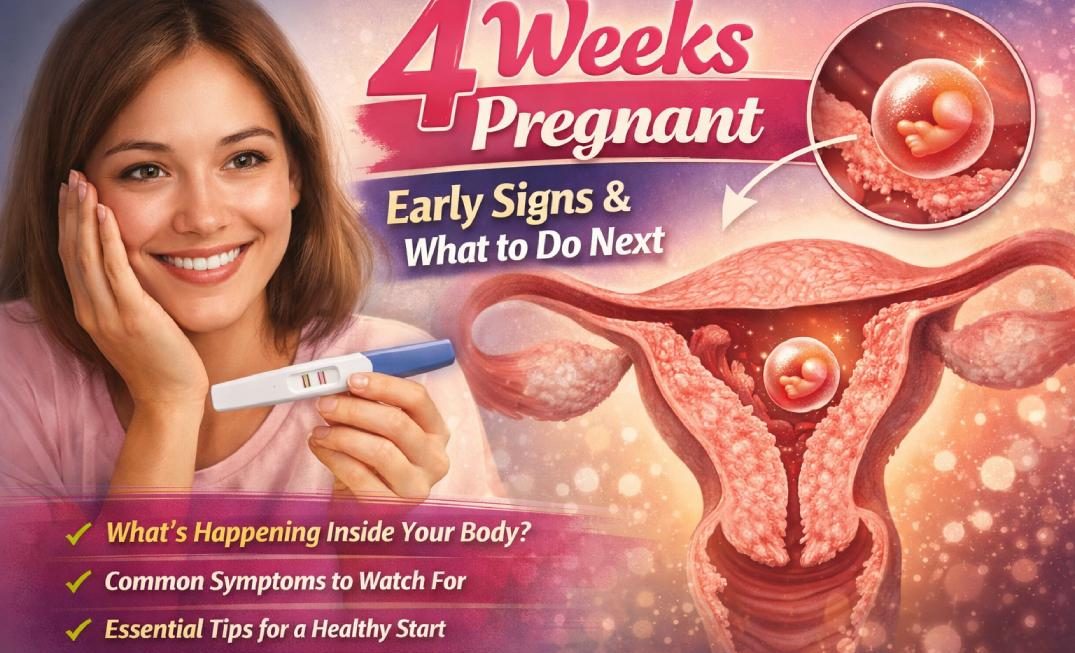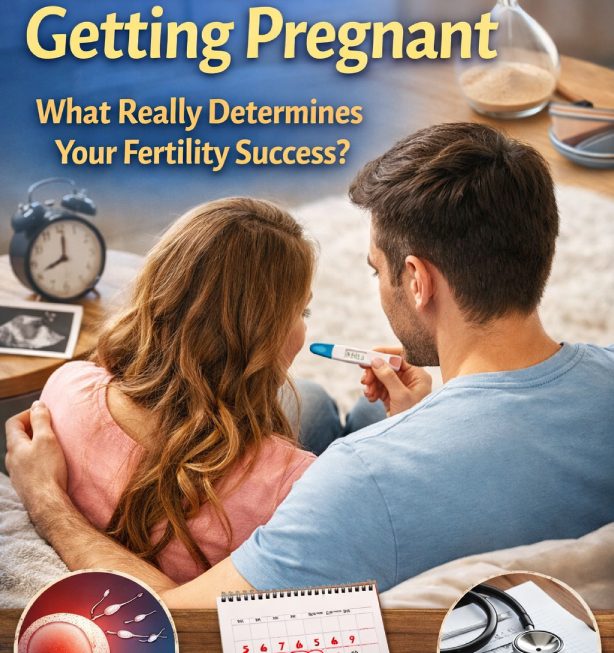Finding the best time to get pregnant can feel like deciphering a secret code. Many couples embark on the journey of parenthood with hope and excitement, yet they often find themselves overwhelmed by a maze of advice, myths, and conflicting information. This comprehensive guide aims to clear the fog surrounding fertility and help you identify the best time to get pregnant by focusing on your body’s natural rhythms, lifestyle habits, and actionable strategies that boost your fertility potential. Whether you’re just starting to plan or have been trying for a while, understanding the best time to get pregnant can empower you with confidence and clarity.
When planning for a baby, timing is everything. knowing the best time to get pregnant means tuning into your body’s signals and aligning your efforts with your menstrual cycle. This guide dives deep into the intricacies of ovulation, hormonal fluctuations, and essential health tips that ensure you’re in the best shape to conceive. The journey to uncovering the best time to get pregnant involves more than just tracking your calendar; it calls for a holistic approach that embraces nutrition, exercise, stress management, and, most importantly, informed decision-making. With a blend of scientific insights and practical advice, this article provides you with a roadmap to maximize your chances of conceiving at the right moment.
Your quest for the best time to get pregnant isn’t just about numbers on a calendar—it’s about understanding your unique fertility signals and adjusting your lifestyle to support them. The best time to get pregnant varies from person to person, but the science behind ovulation and fertility windows remains constant. Armed with this knowledge, you can break through the confusion and step into a proactive role in your reproductive journey. From recognizing the subtle signs your body gives you to leveraging dietary and lifestyle adjustments, this guide is designed to be your go-to resource. So, let’s dive in and uncover the secrets to timing your conception perfectly, ensuring that you hit that golden window—the best time to get pregnant.
Understanding Your Menstrual Cycle: Pinpointing the Best Time To Get Pregnant
A clear grasp of your menstrual cycle is crucial when determining the best time to get pregnant. Your cycle is a complex interplay of hormones that signal when your body is most fertile. Typically, ovulation—the release of an egg—occurs midway through your cycle, marking the best time to get pregnant. By tracking the days leading up to and following ovulation, you can hone in on your fertility window with remarkable precision.
The Science of Ovulation and Fertility
Ovulation is the heartbeat of the fertility cycle. It signals the moment when the best time to get pregnant truly arrives. During ovulation, an egg is released and ready for fertilization, meaning that this period is critical for conception. Tracking your cycle using basal body temperature, ovulation predictor kits, or even natural body signals can help pinpoint the best time to get pregnant. Recognizing these indicators is key to aligning your efforts with the most fertile days of your cycle.
Tracking Ovulation: Tools and Techniques
Effective tools and techniques are available to help you identify the best time to get pregnant. Smartphone apps, digital trackers, and traditional methods like charting your basal body temperature all play a role in mapping your cycle. By using these tools, you can confidently target the best time to get pregnant, ensuring that intercourse is optimally timed to coincide with ovulation. This proactive approach increases your chances of conceiving and reduces the guesswork associated with fertility planning.
Recognizing Natural Fertility Signs
Your body often whispers clues about the best time to get pregnant. Look out for changes in cervical mucus, mild cramping, or increased libido—each can be a sign that ovulation is near. Paying close attention to these natural signals allows you to capitalize on the best time to get pregnant. When you’re tuned in to these subtle hints, you’re better positioned to act during your fertility window, making every cycle count.
Factors Influencing the Best Time To Get Pregnant
Several factors can influence the best time to get pregnant beyond just the menstrual cycle. Age, lifestyle, stress levels, and underlying health conditions all play significant roles in determining when you’re most fertile. Understanding these factors helps create a tailored plan to hit the best time to get pregnant with precision.
Age and Fertility: Timing is Everything
Age is a key element in identifying the best time to get pregnant. As you grow older, the quality and quantity of eggs decline, making the window for the best time to get pregnant narrower. Early planning and proactive measures become essential if you’re looking to maximize your fertility potential. Recognizing the influence of age ensures that you target the best time to get pregnant while your body is at its peak.
Lifestyle Adjustments for Optimized Fertility
Your lifestyle directly impacts the best time to get pregnant. Incorporating a balanced diet, regular exercise, and stress-relief techniques can significantly boost your fertility. Simple changes—like reducing caffeine intake or quitting smoking—can help you better harness the best time to get pregnant. When your body is nourished and stress-free, your reproductive system is more likely to operate optimally, aligning perfectly with the best time to get pregnant.
Nutrition and Diet: Fueling Fertility
A nutrient-rich diet is a cornerstone for achieving the best time to get pregnant. Foods high in antioxidants, vitamins, and minerals support hormonal balance and boost egg quality. Emphasize whole grains, lean proteins, and fresh fruits and vegetables to set the stage for the best time to get pregnant. These dietary choices work hand in hand with other fertility-enhancing practices, ensuring that your body is primed for conception.
Exercise and Physical Activity: Energizing Your Cycle
Regular physical activity contributes to overall wellness and helps regulate your menstrual cycle. Moderate exercise can aid in maintaining a healthy weight, which in turn makes it easier to pinpoint the best time to get pregnant. Staying active keeps your body in balance, ensuring that you can accurately recognize the best time to get pregnant when your cycle is most predictable.
Medical Considerations: Consulting Health Professionals
Sometimes, pinpointing the best time to get pregnant requires professional insight. Health conditions like polycystic ovary syndrome (PCOS) or thyroid issues can throw your cycle off balance, making it harder to determine the best time to get pregnant. Regular consultations with your healthcare provider ensure that any underlying issues are addressed, allowing you to better plan for the best time to get pregnant with expert guidance.
Strategies to Maximize the Best Time To Get Pregnant
Once you understand your cycle and the factors influencing fertility, it’s time to implement strategies that help you make the most of the best time to get pregnant. These actionable tips, grounded in the AIDA (Attention, Interest, Desire, Action) formula, are designed to capture your focus, keep you engaged, and spur you into taking decisive steps.
Attention: Recognizing the Window of Opportunity
Recognize that the best time to get pregnant is your window of opportunity—a fleeting moment where your efforts have the highest chance of success. This period is not to be wasted, so mark it on your calendar and plan accordingly. With a clear vision of the best time to get pregnant, you set the stage for a fruitful journey toward conception.
Interest: Embracing the Science of Fertility
The science behind fertility is fascinating and empowering. By learning about your menstrual cycle, ovulation, and the hormonal dance that leads to the best time to get pregnant, you build interest and understanding. Dive into research, track your cycles diligently, and leverage modern tools to determine the precise best time to get pregnant. The more you know, the better you can prepare for those critical days.
Desire: Cultivating a Fertility-Friendly Lifestyle
Desire to conceive is matched by the determination to prepare your body for the best time to get pregnant. Adopt healthy eating habits, exercise regularly, and manage stress effectively. When your lifestyle mirrors your reproductive goals, your body naturally responds, making it easier to identify and capitalize on the best time to get pregnant. This alignment of body and mind sets the stage for the joyful journey ahead.
Action: Taking Steps to Enhance Fertility
Action is where dreams turn into reality. Armed with knowledge about the best time to get pregnant, it’s time to implement strategies that boost your fertility. Schedule regular check-ups, use ovulation tracking tools, and make dietary adjustments to ensure your body is ready when the best time to get pregnant arrives. Taking decisive action not only enhances your chances of conceiving but also builds momentum as you work towards welcoming a new life.
Common Myths and Facts About the Best Time To Get Pregnant
A sea of myths surrounds the concept of the best time to get pregnant, often leading to confusion and misplaced efforts. Sorting fact from fiction is essential to truly benefit from the best time to get pregnant insights.
Myth 1: Only One “Magic Day” Exists
Many believe there’s a single, magic day that is the best time to get pregnant. In reality, the fertility window spans several days before and after ovulation. Understanding this broader window means you’re not restricted to pinpointing just one day for the best time to get pregnant—instead, you have multiple opportunities to maximize your chances.
Myth 2: Timing Alone Guarantees Conception
While pinpointing the best time to get pregnant is crucial, it’s not the sole determinant of success. Overall health, lifestyle choices, and even genetics play significant roles. Embracing a comprehensive approach that supports the best time to get pregnant increases your odds, but it’s important to remember that no single factor works in isolation.
Myth 3: Fertility Tools Are Too Complex
Some shy away from using apps or tracking devices, assuming they complicate the journey toward the best time to get pregnant. In truth, these tools simplify the process by offering clear insights into your cycle, making it easier than ever to pinpoint the best time to get pregnant accurately.
Actionable Tips for Making the Most of the Best Time To Get Pregnant
To fully benefit from the best time to get pregnant, you need a practical, step-by-step approach that combines knowledge with action.
Prioritize Regular Monitoring
Keeping a detailed record of your menstrual cycle is one of the smartest ways to identify the best time to get pregnant. Daily tracking of your basal body temperature and cervical mucus provides reliable data that pinpoints your ovulation window. This constant monitoring ensures that you don’t miss the best time to get pregnant and allows you to adapt quickly to any changes.
Adopt a Fertility-Boosting Diet
A well-balanced diet not only supports overall health but also enhances your reproductive system’s ability to recognize the best time to get pregnant. Load up on leafy greens, lean proteins, and healthy fats to ensure your body is nutrient-rich. Such nutritional diligence can improve egg quality and bolster your chances during the best time to get pregnant.
Integrate Moderate Exercise into Your Routine
Regular physical activity supports a balanced hormonal environment, making it easier to detect the best time to get pregnant. Aim for a mix of cardio and strength training to keep your body in prime condition. Exercise also helps reduce stress levels, which can otherwise interfere with identifying the best time to get pregnant.
Seek Professional Guidance
Consulting a fertility specialist or your primary care provider can offer tailored insights into your unique cycle. Professional advice is invaluable when pinpointing the best time to get pregnant, especially if underlying health issues might obscure your fertility signals. Regular medical check-ups ensure you’re on track and prepared when the best time to get pregnant arrives.
Frequently Asked Questions About the Best Time To Get Pregnant
Q1: How do I know when the best time to get pregnant is?
A1: The best time to get pregnant usually occurs during the fertility window around ovulation. Track your cycle using apps, ovulation predictor kits, and by observing natural signs like cervical mucus changes to pinpoint this period.
Q2: Does age affect the best time to get pregnant?
A2: Yes, age plays a significant role. Younger women generally have a longer window for the best time to get pregnant, while fertility can decline as you age. Early planning is key to maximizing your chances.
Q3: Can lifestyle changes really improve my chances during the best time to get pregnant?
A3: Absolutely. Eating a nutrient-rich diet, exercising regularly, and managing stress can all help you better identify and take advantage of the best time to get pregnant.
Q4: Are fertility tracking tools reliable for determining the best time to get pregnant?
A4: Most fertility tracking tools are highly reliable when used consistently. They offer clear insights into your cycle, making it easier to determine the best time to get pregnant accurately.
Q5: What should I do if I’m not sure about my cycle patterns?
A5: If your cycle is irregular or you’re uncertain about the best time to get pregnant, consult a healthcare provider. They can run tests, offer advice, and help you create a personalized plan that aligns with your unique cycle.

Embrace Your Journey Toward Conception
Planning for the best time to get pregnant is an empowering process. It’s about taking charge, listening to your body, and aligning your lifestyle with your dreams of parenthood. With a clear understanding of your menstrual cycle, an informed approach to lifestyle adjustments, and actionable steps to track your fertility, you set yourself up for success. The journey might have its ups and downs, but every step you take brings you closer to the magical moment when the best time to get pregnant finally unfolds.
Take these insights to heart, and let them guide you as you work toward building your family. Each day is an opportunity to better understand your body and fine-tune your approach to reach the best time to get pregnant. Remember, this is not just a biological process—it’s a celebration of life, a carefully choreographed dance between science and nature, all leading to the beautiful possibility of new beginnings.
By adopting a proactive stance and following the strategies outlined above, you can transform uncertainty into a confident, informed journey toward parenthood. When the best time to get pregnant comes, you’ll be ready—body, mind, and spirit—ensuring that your path to conception is as smooth and rewarding as possible. Embrace this exciting chapter, and let the rhythm of your body lead you to the moment when the best time to get pregnant truly shines.
Embody the spirit of hope and perseverance as you navigate the intricate process of conceiving. With clear insights, actionable advice, and the determination to make every cycle count, you’re well on your way to hitting the best time to get pregnant. The future is bright, the possibilities endless, and your journey toward parenthood is just beginning.


